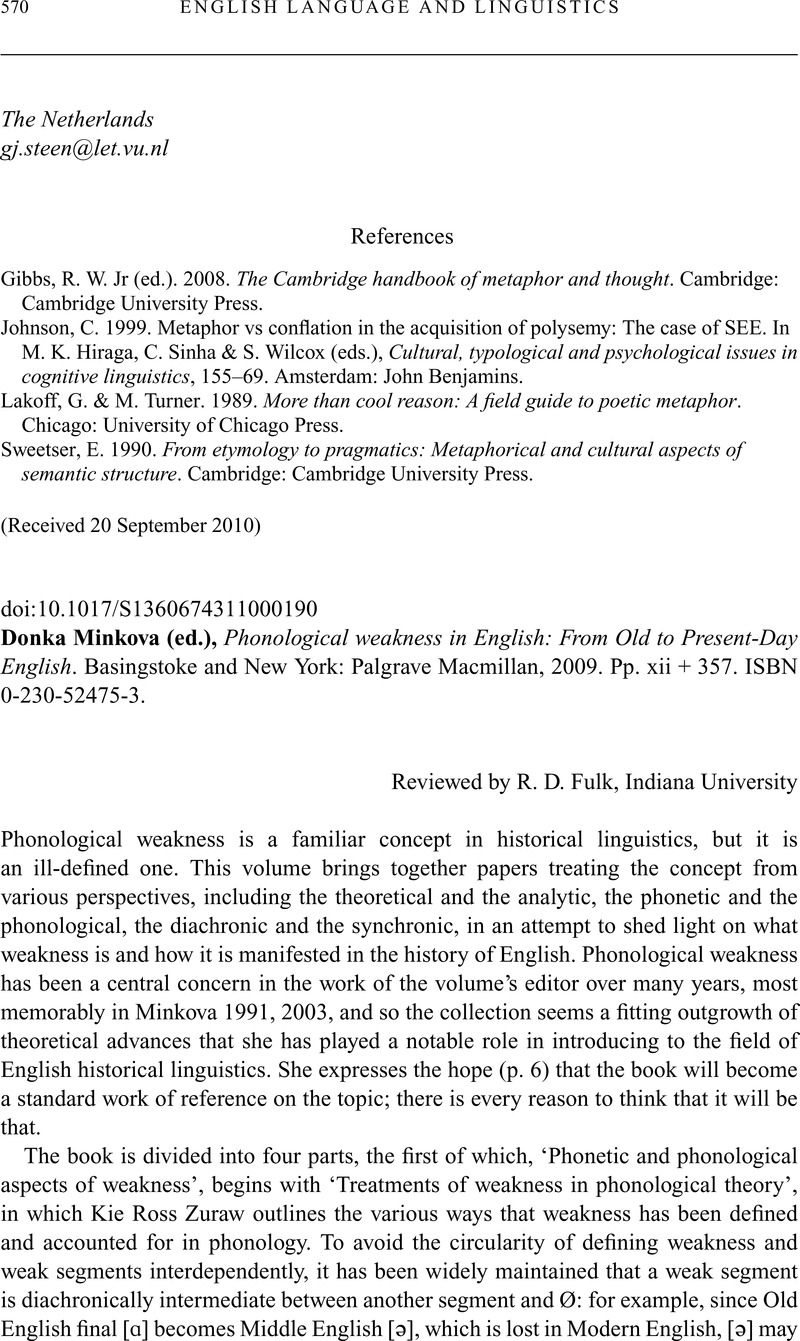No CrossRef data available.
Article contents
Donka Minkova (ed.), Phonological weakness in English: From Old to Present-Day English. Basingstoke and New York: Palgrave Macmillan, 2009. Pp. xii + 357. ISBN 0-230-52475-3.
Published online by Cambridge University Press: 04 October 2011
Abstract
An abstract is not available for this content so a preview has been provided. Please use the Get access link above for information on how to access this content.

- Type
- Reviews
- Information
- Copyright
- Copyright © Cambridge University Press 2011
References
Laing, M. & Lass, R. (eds.). 2008. A linguistic atlas of early Middle English. http://lel.ed.ac.uk/ihd/laeme1/laeme1.html.Google Scholar
McIntosh, A., Samuels, M. L. & Benskin, M. (eds.). 1986. A linguistic atlas of late mediæval English. Aberdeen: Aberdeen University Press.Google Scholar
Minkova, D. 1991. The history of final vowels in English: The sound of muting. Berlin: Mouton de Gruyter.CrossRefGoogle Scholar
Minkova, D. 2003. Alliteration and sound change in early English. Cambridge: Cambridge University Press.CrossRefGoogle Scholar
Rissanen, M., Kytö, M., Kahlas-Tarkka, L., Kilpiö, M., Nevanlinna, S., Taavitsainen, I., Nevalainen, T. & Raumolin-Brunberg, H. (eds.). 1991. The Helsinki Corpus of English texts. Helsinki: Department of English, University of Helsinki.Google Scholar




